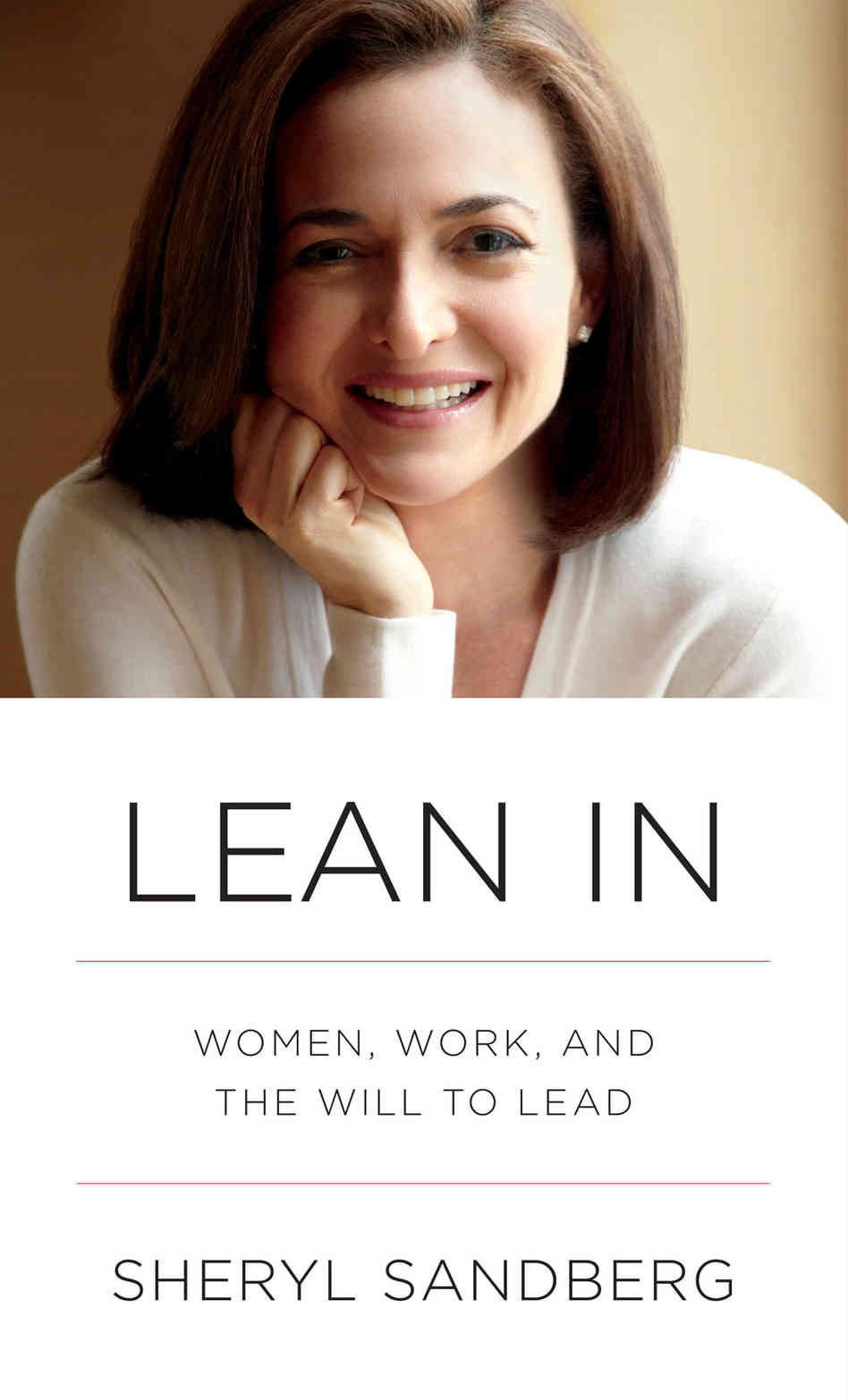 Although I am a feminist and believe wholeheartedly in female empowerment and equalizing gender opportunities, I am simply unconvinced by Sheryl Sandberg’s Lean In philosophy and argument.
Although I am a feminist and believe wholeheartedly in female empowerment and equalizing gender opportunities, I am simply unconvinced by Sheryl Sandberg’s Lean In philosophy and argument.
I had been so looking forward to reading the Facebook CEO’s perspective on success and how to make it in corporate America. Unfortunately, not only did she not convince me, I feel like she has actually blamed the victim rather than helped reinvigorate feminism.
She is now one of the youngest (44 years old) and one of only 138 women on the Forbes Billionaires list. The start of her Lean In popularity was with her 2010 TED talk (3.3 million views), followed by the book that capitalized on the lecture’s success and which has resulted, according to Sandberg, in the creation of 15,000 Lean In circles across the world. Not only did Lean In remain on the New York Times bestsellers list for twelve weeks, Sony Pictures just bought the movie rights. And if you want the latest installment, check out Sandberg’s most recent TED talk, which came out this month. So we leaned in – now what?

The Lean In hype feels much more like a regression than a step in the right direction. It is being pushed and invested in because it doesn’t actually promote change in corporate America, it asks women to change to accommodate to the existing social and corporate structure.
Of course the statistics and studies that Sandberg quotes are extremely relevant, correct and important to highlight. It is totally outrageous that in the U.S. today, there still isn’t equal pay for equal work – and this is not only gender-based but race-based as well. Highlighting this discrepancy and demanding for its rectification is necessary and I totally support her on this issue. Yet, when she tries to sell Lean In as a feminist manifesto, this is when I cringe as she is being very exclusive of the rest of the working women of the world.
Sandberg’s argument doesn’t make sense. She doesn’t mention at all what life is like for those trying to make ends meet financially, why they should give endless hours and take no vacations from corporations that have economies larger than most countries. She tells us to follow Eric Schmidt’s advice: “If you are offered a seat on the rocket ship, you don’t ask which seat”. This favors companies over workers and capitalism over any feminist principles.
It seems even harder to relate to Sandberg’s argument in Egypt. After asking several friends and relatives in the government and private sector, they declared that most women earn the same as men, for the same job. That’s not where the struggle lies; living in a patriarchal society is the more challenging facet, where it is still discouraged and looked down upon when women stay late at their jobs or have to travel a lot for work.
 Yet, the reality is, men here are supportive because it is necessary in these difficult economic times for there to be two bread winners in each family, with the increasing prices of private schools and universities for those who have children. Even for singles, life is becoming increasingly more expensive, with gas, rent and mobile bills.
Yet, the reality is, men here are supportive because it is necessary in these difficult economic times for there to be two bread winners in each family, with the increasing prices of private schools and universities for those who have children. Even for singles, life is becoming increasingly more expensive, with gas, rent and mobile bills.
Maybe we would all be much more willing to lean in, according to Kate Losse,
“if we saw better models and possibilities of fitting work and life together: ways of slowing down for a while but still staying on a long-term promotion track; of getting work done on our own time rather than according to a fixed schedule; of being affirmed daily in our roles both as parents and as professionals. By arguing that women should express their feminism by remaining in the workplace at all costs, Sandberg encourages women to maintain a commitment to the workplace without encouraging the workplace to maintain a commitment to them.”
Sandberg’s reasoning behind why women are not on the executive chains in corporate America is layered into several arguments, which she makes by giving examples that she has faced throughout her executive career. Among them is that women don’t sit at the table, they sit on the side at meetings. They don’t attribute their success to themselves but share it and claim it as a collaborative success. They feel guilty when not coping with family demands. And they take themselves out of the equation, which means they pass on promotions because they find the time constraints and the juggling of household and parental responsibilities too overwhelming.

Therefore, in Sandberg’s opinion, they should stop all that. They should lean in, sit at the table, hand their grocery list to their husband, go for the promotion. She claims true equality is not apologetic and that women should not apologize for being ambitious or go-getters. Sandberg hopes that by clarifying the obstacles, women can then anticipate the barriers and overcome them. She wants women to dream big, reach for their goals with gusto and choose men who support them in their pursuits.
Sandberg promotes these arguments through motivational phrases like,
“Done is better than perfect,” and “What would you do if you weren’t afraid?”
“When more people get in the race, more records will be broken,” and, “Do not leave before you leave,”
“Do not lean back; lean in. Put your foot on that gas pedal and keep it there, until the day you have to make a decision, and then make a decision. That’s the only way, when that day comes, you’ll even have a decision to make.”
This argument is just too simplistic. Although I agree that women take themselves out of the corporate ladder, it’s not because of not leaning in or not properly divvying up home responsibilities or because they are not self-confident enough to sit at the table.
 It’s more that we cannot fathom why a meeting should take all day when it can be done in just thirty minutes. We don’t understand why we all need to commute and sit in cubicles, utilizing extra electricity, carbon emissions and petrol, when one can stay at home and be much more efficient time-wise. Many women value their time too much to commute for hours just to punch in their time slot – and many don’t even have the luxury of such a choice.
It’s more that we cannot fathom why a meeting should take all day when it can be done in just thirty minutes. We don’t understand why we all need to commute and sit in cubicles, utilizing extra electricity, carbon emissions and petrol, when one can stay at home and be much more efficient time-wise. Many women value their time too much to commute for hours just to punch in their time slot – and many don’t even have the luxury of such a choice.
Employees of all races and genders want a work environment that has flexi-hours and child-rearing/day-care services nearby, where they can be satisfied mentally as well as be an “available parent”. Too many people opt out of board meetings not because they don’t have what it takes, but because they are strong enough to know and demand for a better, more balanced lifestyle, not unceasing labor that is barrier-less because of technology for no additional returns.
No one who reads this book will ever doubt that Sandberg herself has the will to lead, not to mention the requisite commitment, intelligence and ferocious work ethic. Yet the Harvard MBA graduate’s trails far behind hard-core feminists like Nawal El-Saadawi who says,
“For me feminism includes everything. It is social justice, political justice, sexual justice… It is the link between medicine, literature, politics, economics, psychology and history. Feminism is all that. You cannot understand the oppression of women without this.”
Yet Sandberg promotes a world that doesn’t rectify or renovate the workplace, it ingrains its fortitude and maximizes the benefits for the corporate world. Kate Losse explains it best:
“For both the women who have made it and the men who work with them, it is cheaper and more comfortable to believe that what they need to do is simply urge younger women to be more like them, to think differently and negotiate more effectively, rather than make major changes in the way their companies work.”
WE SAID THIS: For more of Sherine’s writing, click here.


